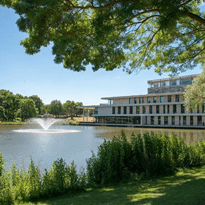Guest Lecture at the University of Essex
On Monday 11th November, Ashlee Jacobs, Pedagogical Lead at the Raedwald Trust delivered a guest lecture to second year psychosocial and psychoanalytic studies students at the University of Essex.
The two hour lecture examined how professionals in the alternative provision sector approach working with children and young people who have been excluded from mainstream education as well as making links to theories around childhood development.
As part of the lecture, students were given an overview of figures obtained from the January 2019 census:
– 41 pupils are excluded from English state schools every day.
– The number of pupils ‘on-roll’ with an alternative provision provider was 14,000.
– The number of pupils with SEND (Special Educational Needs and Disability) without an EHCP, accessing Alternative Provision was 11,000.
– The most common reason for permanent exclusion is persistent disruptive behaviour.
– Top risk factors that increase the likelihood of a child being excluded are poverty and special educational needs.
– It takes five generations for a child in England, born into a low income household, to approach the mean income of society.
Ashlee also led a discussion about the importance of positive working relationships between staff, pupils and families as an integral part of work in alternative provision, as well as talking about theories of brain development and the impact of early childhood trauma.
Ashlee said: “I was delighted to be asked to lecture at the University.
“The census figures are really quite stark. Hopefully delivering the lecture helped to educate and inform students about the realities of why young people access alternative provision and how we, as professionals within the sector, can help realise their untapped potential.”
Prior to the lecture, Ashlee had been working closely with Dr. Jessica Clark (PhD, SFHEA, FRGS) from the psychosocial and psychoanalytic studies department at the University of Essex on the subject of alternative provision. Going forward, they are looking to work on further research projects that will ultimately benefit young people and their education. Potential subjects include boys generally (looking at ambitions, imagined futures, generational and peer relationships and post me-too gender relations), and girls excluded from mainstream settings (as an understudied minority).
The Raedwald Trust is committed to developing its provision in line with the latest research, and strive to ensure that teaching programmes reflect new findings accordingly. In this way, young people get the best provision possible, leading to improved academic and wellbeing outcomes.

